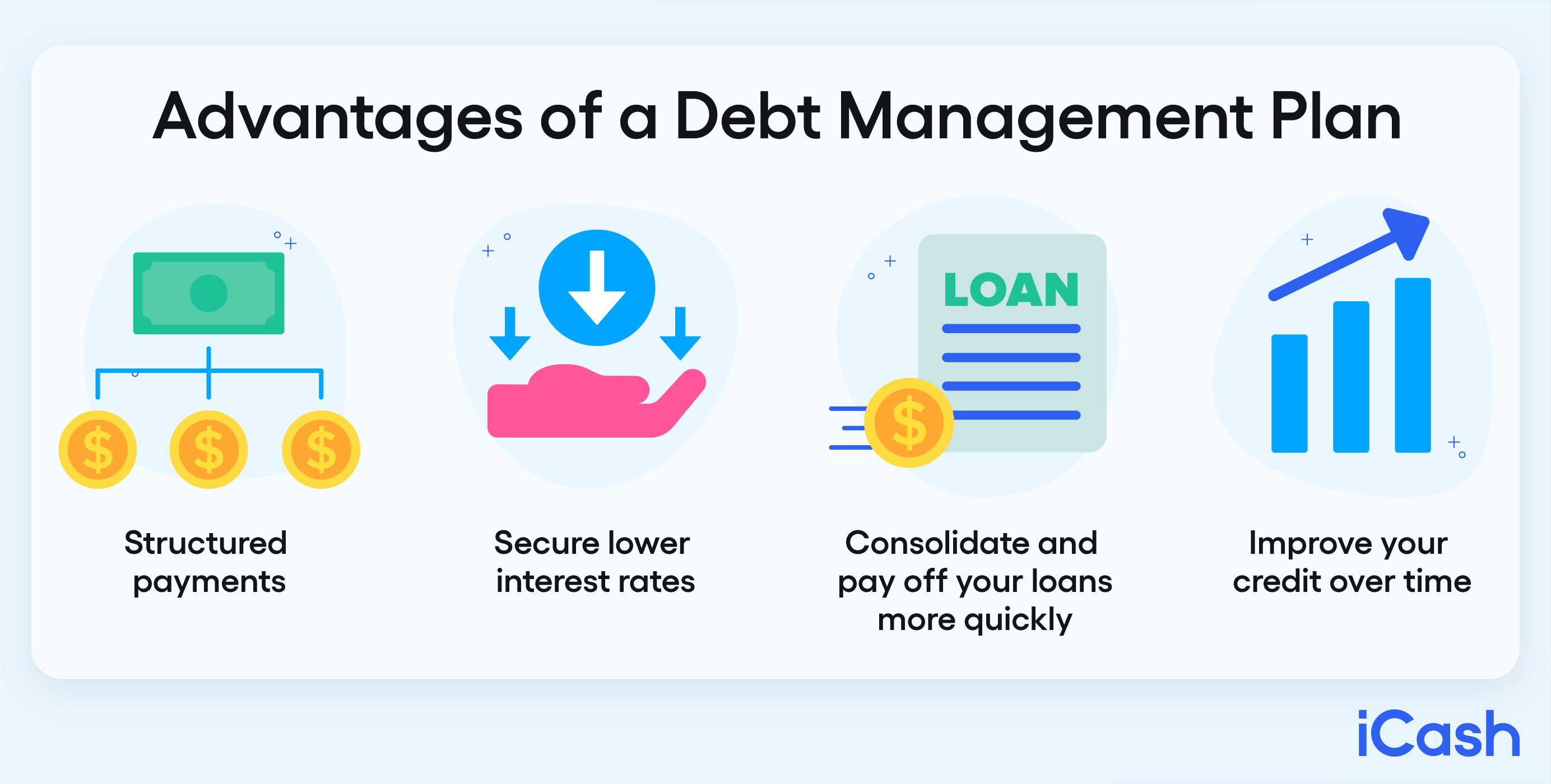Professional Tips and Strategies for Applying an Effective Debt Monitoring Strategy
When it comes to navigating the intricacies of financial debt management, having a well-thought-out strategy is essential for attaining monetary security. From analyzing your current monetary standing to discussing with financial institutions, each step plays a critical function in forming an effective debt administration strategy.
Assessing Your Current Financial Situation
Before getting started on a financial obligation management strategy, it is vital to thoroughly review your current economic standing. Comprehending your economic circumstance is the fundamental step in the direction of efficiently taking care of and minimizing your debt.

Establishing a Realistic Budget Plan
Recognizing your current financial scenario lays the groundwork for establishing a realistic budget that aligns with your debt management goals and monetary abilities. When producing a budget plan, it's crucial to accurately track your income, expenses, and debt commitments. Beginning by detailing all incomes, consisting of incomes, perks, and any type of additional earnings. Next, detail your dealt with expenditures such as lease or home loan payments, utilities, insurance coverage, and funding settlements. Variable costs like groceries, entertainment, and transport must likewise be accounted for. By classifying your costs, you can recognize areas where you might require to cut down to liberate funds for debt settlement.

Prioritizing and Tackling Financial Obligations
To properly restore control of your financial resources and work in the direction of monetary security, focusing on and tackling your financial debts is an important action in your financial obligation monitoring strategy. Beginning by listing all your financial obligations, including bank card, financings, and any kind of other outstanding balances. Determine high-interest financial obligations that are costing you the most cash and focus on paying them off initially. By concentrating on these high-interest financial obligations, you can save money over time and decrease the overall amount you owe.
After determining your high-interest debts, think about using approaches like the financial debt snowball or debt avalanche approach to pay them off systematically. The financial debt snowball technique involves repaying the smallest financial debts first, while the financial debt avalanche technique prioritizes financial obligations with the greatest rates of interest. Select the approach that lines up ideal with your monetary objectives and motivates you to maintain making progression.
Furthermore, consider working out with creditors for lower passion rates or establishing up a payment plan if you're battling to meet your present commitments. Seeking support from a credit report counselor or financial expert can also offer beneficial insights and support on how to successfully tackle your financial debts - debt management plan services. By prioritizing and addressing your financial obligations purposefully, you can lead the way towards a debt-free future and enhanced monetary health
Working Out With Financial Institutions
When engaging in financial debt monitoring, discussing with lenders is a vital step in the direction of discovering mutually beneficial remedies for financial debt payment. Before launching settlements, it is important to have a clear understanding of your economic scenario, including your income, expenditures, and the overall amount of financial debt owed.

Structure Healthy Monetary Behaviors
Integrating constant budgeting techniques is vital for growing healthy and balanced financial routines. Budgeting permits people to track their revenue and costs, allowing them to make enlightened choices about their monetary concerns. Establishing specific economic objectives, such as conserving for emergency situations or retired life, can give a clear roadmap for taking care of money efficiently.
One more key aspect of building healthy financial habits is living within one's methods. This entails investing less than what is earned and avoiding unnecessary financial debt. Taking on a thrifty way of thinking and differentiating in between requirements and desires can assist people make even more prudent costs choices.
On a regular basis assessing economic declarations and keeping an eye on credit score records are essential practices that promote economic understanding and obligation. By staying educated concerning their monetary standing, individuals can identify possible problems at an early stage and take proactive actions to resolve them.
Furthermore, developing a cost savings practice, even with percentages, can contribute dramatically to long-lasting financial security. Conserving on a regular basis not only constructs a monetary padding for unforeseen expenses yet likewise fosters a feeling of discipline and duty towards finance. By consistently exercising these practices, people can lay a strong structure for a stable financial go to the website future.
Conclusion
To conclude, executing an effective financial obligation management strategy requires a complete assessment of one's monetary situation, the advancement of a practical budget plan, prioritizing and taking on debts, bargaining with creditors, and structure healthy and balanced financial routines (debt management plan services). By adhering to these expert ideas and strategies, individuals can take control of their financial resources and job towards achieving monetary security and freedom from debt
Understanding your existing economic scenario lays the foundation for establishing a reasonable budget that aligns with your debt monitoring objectives and economic capabilities.To effectively reclaim control of your funds and work towards economic stability, prioritizing and tackling your financial debts is a crucial action in your debt management plan.After identifying your high-interest Recommended Reading financial obligations, take into consideration using methods like the financial debt snowball or debt avalanche method to pay them off methodically. The financial debt snowball method entails paying off the smallest financial obligations initially, while the debt avalanche technique focuses on financial debts with the highest possible passion prices.When engaging in debt management, negotiating with creditors is a crucial step in the direction of locating mutually useful services for debt payment.
Comments on “Understanding the Duty of Debt Management Plan Services in Financial Planning”